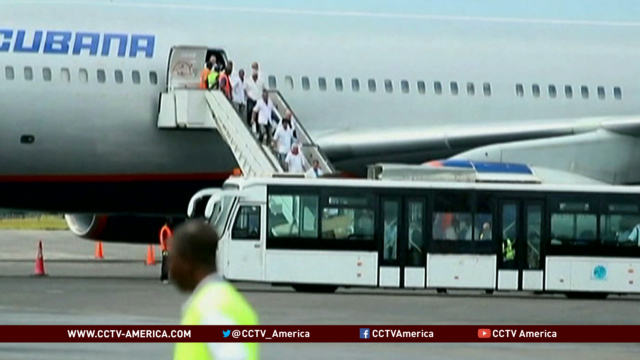New figures released Wednesday by the World Health Organization recorded 13,703 cases of Ebola from the current pandemic, an increase of 35 percent from the previous report four days earlier. While this may appear that roughly a quarter of all cases from the current outbreak happened in less than a week, WHO and other experts cautioned that the difference was a reflection of better tracking.
“As new testing and treatment centers open, the counts of cases are getting more accurate. So a higher case count doesn’t necessarily mean that things are getting worse. We might just be counting a higher percentage of the cases,” said George Mason University professor Kathryn Jacobsen, a health expert who has conducted field research in Sierra Leone. “At the same time, we know there are still people who are not being counted.”
In Sierra Leone, the government has given out information on how a family can care for someone with Ebola at home, if they don’t have access to a health care facility. However it’s unclear what percent of the cases are being treated at home and how many are being diagnosed and counted in formal reports, she added.
Interactive: The Ebola pandemic of 2014
US, Cuba coordinate on Ebola response
Health officials from the United States attended a special Ebola meeting in Cuba this week, displaying cooperation between two historic adversaries in combating the disease. CCTV America’s Michael Voss reports from Havana.

Health experts from 32 nations across the Americas are working on a coordinated regional response, should any localized cases of Ebola arise. The Havana conference was called by the ALBA Group, a block of left-leaning countries set up to counter U.S. influence in the region. However, combating this killer virus is one area of mutual interest that is bringing the two sides closer together.
Now with help from the U.S. and the U.N., Cuba is starting to train health professionals from across Latin America and the Caribbean on how to detect and treat the disease.
“Cuba has been preparing and gaining experience and as we gain experience. We continue to prepare human resources, infrastructure and acquire technology, should an Ebola outbreak arrive in Latin America,” said Cuban Health Minister Roberto Morales.
Cuba has a long tradition of medical assistance to countries across Latin America and Africa and was one of the first to respond when the United Nations called for help. Cuba has already sent more than 250 doctors and nurses to Sierra Leone, Liberia and Guinea, with more to come. One member of the Cuban team died of malaria this week.
The U.S. has expressed appreciation for the Cuban effort and says it is ready to work with Cubans on the ground in Africa.
 CGTN America
CGTN America
